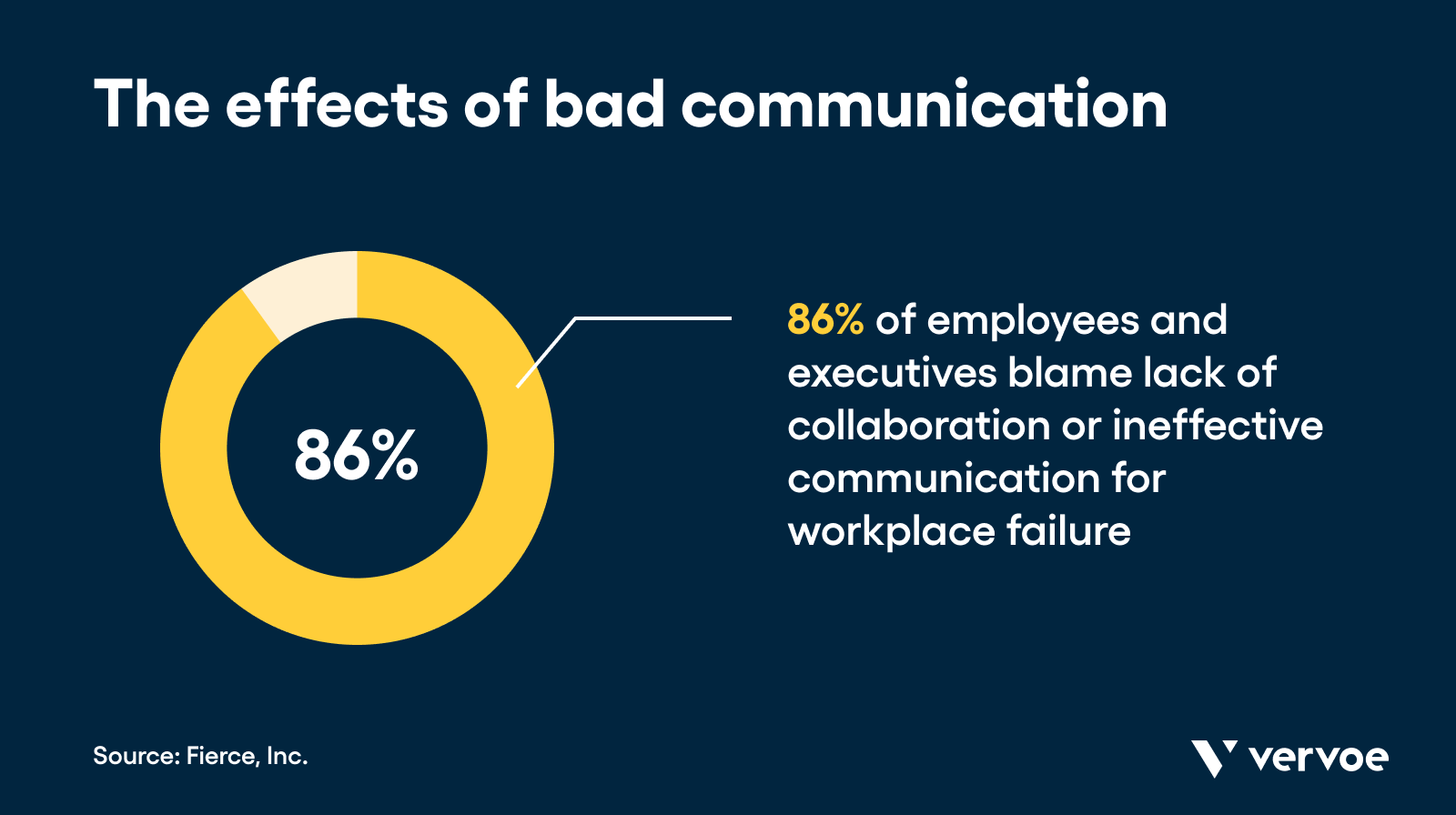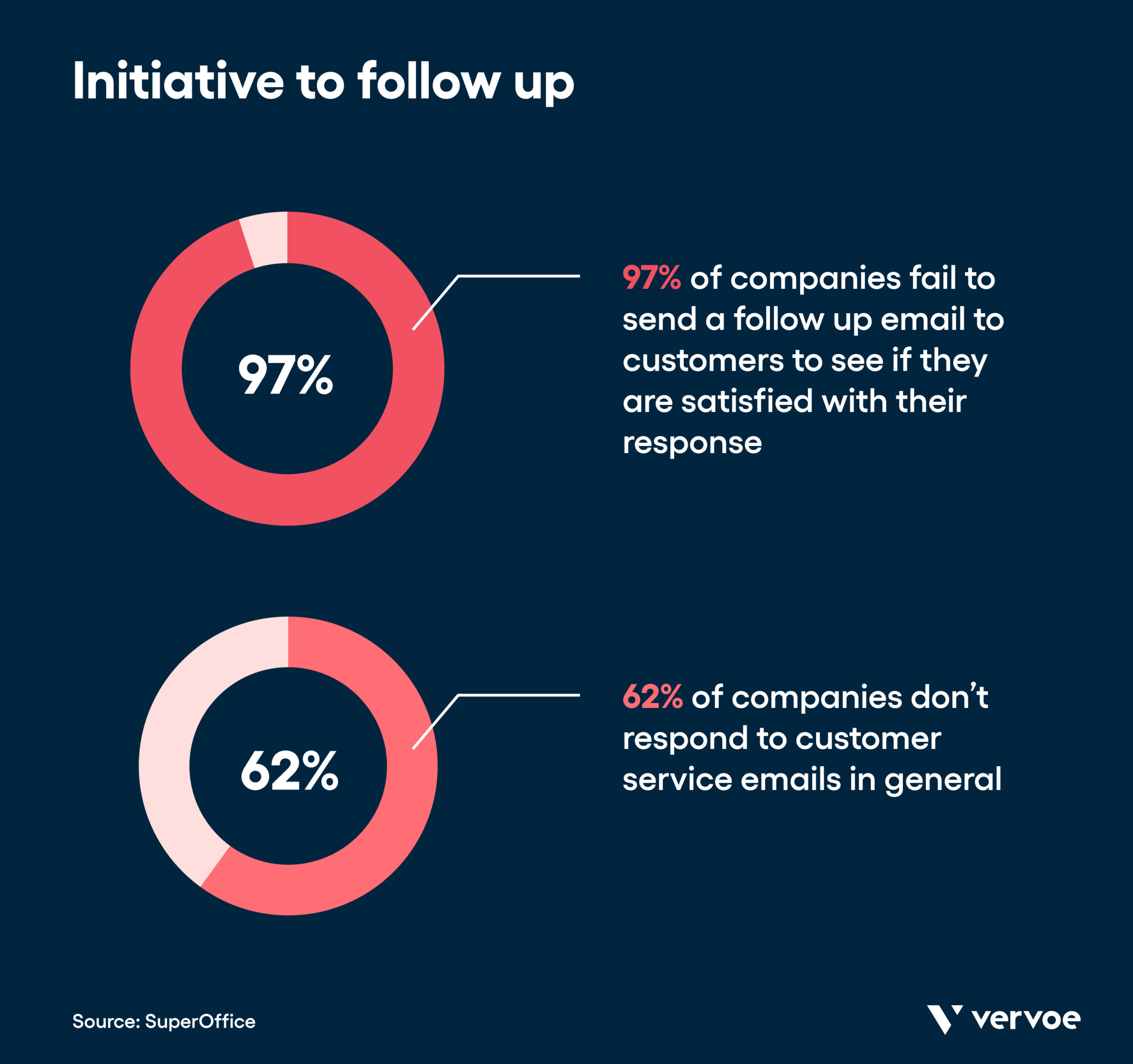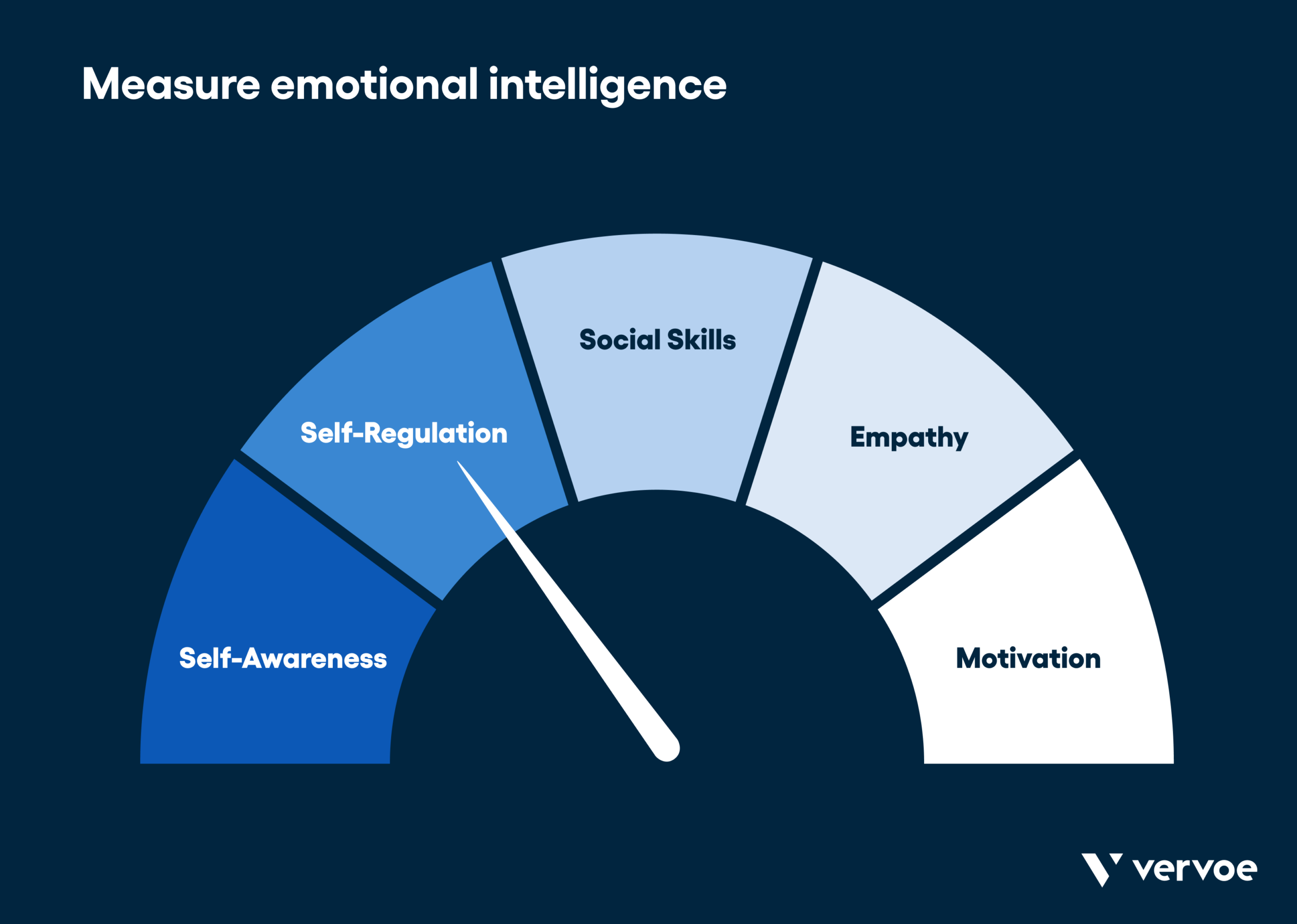“Building a good customer experience does not happen by accident. It happens by design”, according to Clare Muscutt, Founder of CMXperience.
Her wisdom brings to light the importance of taking a strategic approach to hiring and managing a customer service team.
The fact of the matter is that it’s simply not possible to build a customer service team that boasts the best customer service qualities if you don’t know which customer service traits to prioritize in the first place.
Whether you want to expand your team of call center agents or hire a customer service manager, you need to have an understanding of which key characteristics of good customer service skills to look out for. You also require this understanding to support your team to improve their existing skills or develop new ones.
So what key strengths for customer service should you start prioritizing as an HR professional, hiring manager, or business owner?
This easy-to-read guide will highlight the most essential characteristics of customer service your team needs to ensure your customers come back time and time again. It’s a must-read for anyone who’s ever wondered what customer service traits to focus on in order to strengthen their customer service team.
It also features actionable expert advice from a leader in the field that will get you and your team aligned to provide great customer service experiences today.
What are customer service skills?
Simply put, customer service skills are the qualities of good customer service that all customer service professionals should possess.
When you think about the qualities of a good customer service employee, certain customer service skills spring to mind. While they may vary slightly from role to role, key attributes of customer service are largely the same across the industry.
As you’ll soon discover, these skills are critical not only to the success of each employee, but also to your team and company as a whole. If you can look out for these customer service skills in candidates, as well as train your employees to master them, your customer service team will start reflecting key characteristics of great customer service in everything they do.
Customer service skills list
Are you after a clear answer to the question “What qualities make good customer service?”. The following customer service skills list will provide it. It brings to light the 18 most important qualities of customer service your team should have.
This customer service skills list comprises both hard and soft skills needed for customer service. The reason it includes both is that they equally reflect characteristics of customer service excellence.
That said, it’s worth noting that while attention is often given to hard customer service skills, hiring for soft skills is a recruitment trend that doesn’t show signs of slowing down.
1. Communication
Communication is one of the top qualities of good customer service skills for good reason: it impacts absolutely everything your team does.
Not only do communication skills enable your team to develop positive relationships with customers and one another, but they also make your team stronger. CMSWire found that most employees say that communication impacts their task efficacy levels.
What’s more, 86% of employees and executives blame lack of collaboration or ineffective communication for workplace failure. So it’s little wonder why communication is a crucial customer service trait for your team to develop.

2. Listening skills
Listening skills are another crucial customer service skill that your team should possess. In order to understand this skill, it’s important to make the distinction between typical listening and ‘active listening’.
Listening skills go beyond just hearing what customers say. That’s why the term ‘active listening’ was coined. It describes being focused on what customers say, coming to an understanding of what they mean, and responding in a way that genuinely addresses what they have conveyed to you.
Active listening is one of the most powerful qualities of a customer service professional as it results in customers feeling truly supported. Plus, it’s linked with customer loyalty, with Apptentive finding that 97% of consumers are more likely to maintain loyalty to a brand that implements changes based on their feedback.
3. Emotional intelligence
Emotional intelligence, which is a characteristic of good customer service, is defined as “the ability to perceive, control, and evaluate emotions”. It’s worth focusing on because it empowers your customer service team to develop both authenticity and trust with your customers.
Bruna Martinuzzi, a well-regarded communications coach, points out that emotional intelligence allows customer service professionals to take advantage of a range of qualities needed for customer service including self-awareness, awareness of others, empathy, and self-management.
4. Friendliness
When it comes to key elements of good customer service, friendliness certainly makes the cut as customers place a high value on how friendly your customer service team is. PwC found that four out of five American consumers believe that friendly service is one of the most critical components of a positive customer experience.
This finding is bolstered by Oracle’s study, which identified that nearly three-quarters of consumers state that friendly customer service representatives and employees are what make a memorable experience that leads them to remain loyal to a brand.

5. Ability to remain calm under pressure
Your team may possess many great customer service skills, but they won’t be able to perform optimally unless they possess the ability to remain calm under pressure.
The reason it’s considered one of the most essential qualities of a customer service professional is that customer service teams are often faced with stressful situations. From rude customers to order delays, there’s no shortage of challenges they face on a daily basis.
So it makes sense that employees’ performance is impacted by their ability to remain calm under pressure and manage their emotions. Another reason it’s useful to develop this skill in your team is that stress can have enormous implications for their health, as well as that of your business.
6. Good organization
When you think of what qualities make good customer service, good organization instantly comes to mind. Your customers certainly care if your team has good organization skills. One study found that 74% of people have stopped associating with a company and moved to a competitor after feeling that the company was disorganized.
What’s so interesting about this soft skill is that it’s reliant on many other critical customer service traits. For example, good organizational skills require additional skills such as time management, task analysis, attention to detail, prioritization, and goal setting, to name a few examples.

7. Writing skills
While your customer service representatives no doubt do a lot of talking, the importance of writing skills as a key feature of customer service work shouldn’t be underestimated.
Customers are increasingly using social media to reach out to your team. Microsoft found that more than 30% of American consumers contacted a business over social media at some point in 2017. It’s not only social media they’re using, either. An estimated 66% of companies have witnessed an increase in tickets and service requests from digital channels.
In order to provide your customers with world-class customer service via social media or any other digital channels, your team must hone their writing skills. If they fail to do so, they’ll lack the ability to expertly communicate to your customers in an increasingly digital world.

8. Body language
If your team engages with customers face-to-face, they’ll also need to develop an understanding of how their body language impacts their interactions with customers.
As you’re probably aware, at least 70% of communication is non-verbal. So in order for your team to achieve high customer satisfaction levels, they must learn to master non-verbal communication.
Fortunately, developing this characteristic of customer service couldn’t be more straightforward. There are many simple ways your team can strengthen their body language skills including maintaining eye contact, smiling when they greet or talk to customers, and relaxing their shoulders.
9. Initiative to follow up
It may seem obvious to suggest that your customer service team should possess the initiative to follow up. However, research indicates that most customer service representatives fail to excel in this most basic of customer service skills.
For example, SuperOffice’s customer survey found that 97% of companies fail to send a follow up email to customers to see if they are satisfied with their response. As if that wasn’t alarming enough, 62% of companies don’t respond to customer service emails in general.
Possessing the initiative to follow up is also essential because it provides the opportunity for any outstanding problems to be resolved and for your customers to continue or end their interactions with your team on a positive note.

10. Customer service
We’d be remiss to exclude the skill of customer service from our top customer service skills list. Customer service as a skill describes the mastery of practices and procedures that endeavor to improve all interactions between a business and its customers.
So why is it so important? Connie Edler, Founder and CEO of Peak 10 Skin explains that excellent customer service is “the personality of the company and the reason customers come back”.
[Read more: 10 Key Customer Service Soft Skills Your Team Should Master]
11. Point of Sale (POS)
Being able to use your Point of Sale (POS) systems is one thing. Being able to use them well is another. This is why POS is considered one of the most significant skills needed for customer service.
With so many different types on the market, you may need to ensure your team can work their way around more than one type.
It’s worth keeping in mind that the POS skills your customer service representatives need may change in the future. Consider Capterra’s study, which found that while 57% of businesses using POS systems currently prefer on-premise/installed POS systems over web-based POS systems, there is a growing trend of businesses using web-based POS systems.
12. Data entry
Did you know that data entry makes up 17% of a salesperson’s day on average? This statistic in itself should convey why data entry is one of the key characteristics of great customer service.
Data entry is such a vital skill because it helps with planning, goal setting, rectifying shortcomings, and everything in between.
So what does a customer service representative with strong data entry skills look like?
They’re highly accurate, given that data entry mistakes can lead to errors that tarnish statistical results and conclusions. But they’re simultaneously efficient. Those with exceptional data entry skills also possess the ability to analyze data and communicate data-related findings to others.
13. Sales floor
Sales floor skills are crucial if your customer service team works at your physical stores, showrooms, or events.
So what exactly do sales floor skills entail? Sales expert Mark Roberge says that sales “is no longer about interrupting, pitching and closing. It is about listening, diagnosing, and prescribing”.
With this in mind, you’ll be able to support your team to develop their skills in this area. Just remember to also train for relevant hard skills, such as replenishing stock, using the POS system, and maintaining the appearance of the sales floor.
14. Outbound calls
Successive research shows that outbound calls are an essential customer service skill your team should possess. For example, RAIN Group found that 82% of buyers accept meetings with sellers who cold call, while Sales Insights Lab identified that 41.2% of sales representatives say that the phone is the most effective sales tool at their disposal.
Outbound calls are a skill that usually needs to be developed because there’s a particular art to making strong outbound calls. According to Hubspot, 69% of customers believe sales representatives who listen to their needs make for positive customer service experiences. Hubspot also found that 61% of customers consider non-pushy sales representatives as a key feature of a positive customer service experience.
15. Customer information
Want to learn about one of the qualities of good customer service skills that doesn’t get nearly enough attention? It’s customer information.
At the end of the day, customer service is all about your customers. So in order to provide exceptional customer service, your team must have a solid understanding of who they’re serving. As entrepreneur Jay Baer put it, “The more you know about your customers, the more you can provide to them information that is increasingly useful, relevant, and persuasive”.
Your team should therefore learn how to verify, enter, process, and research customer information on your company’s customer service systems. In addition, they should not only be aware of and follow any relevant laws and regulations regarding customer information, but also do the same for your company’s own rules regarding customer information.
16. Ability to hit sales goals
While the ability to hit sales goals is one of the most desirable characteristics of customer service, it’s also one of the trickiest to possess.
Part of the problem lies in the fact it’s not just down to skill — it also takes perseverance, time, and even some luck. If you’d like your customer service team to develop this skill, experts recommend that they should focus on monitoring their sales pipeline, prospecting consistently, and reducing the length of their sales process.
17. Product knowledge
Product knowledge is another customer service trait you should focus on in your team. Need some convincing? The Balance highlights that product knowledge can benefit everything from your sales to your team’s communication skills, and your customers’ excitement for your products.
Product knowledge can be hard to develop, particularly if you or your team are short on time or your company has a large inventory of products.
It’s a good thing, then, that knowledge bases exist. Think of them as a library of information about your products. If you’re considering using them, you’ll be in good company. Data from Salesforce indicates that 66% of customer service teams already use knowledge bases.
18. Industry knowledge
Industry knowledge will also allow your customer service team to possess qualities of good customer service.
Having knowledge of industry history and happenings gives your team a competitive advantage. In addition, it encourages your team to consider best practices in your industry when serving your customers.
By leveraging their industry knowledge, they’ll be able to determine the most suitable steps to take in any given customer service situation.
[Read more: 8 Vital Customer Service Hard Skills Your Representatives Need]
Expert advice on customer service skills
To gain a deeper understanding of good customer service skills for hiring managers and business owners to prioritize, we reached out to a leader in the field.
As Senior Manager of Support at Loom, Susana de Sousa is responsible for managing a team of 15 support professionals to create a support experience for Loom’s 15 million users that is “efficient, educational, and human”.
During the hiring process, she actively looks for important characteristics of customer service such as empathy, patience, and emotional intelligence. “I find that in support teams, you can train for most hard skills, but certain traits may determine the candidate’s and, by extension, the team’s success,” she says.
Susana believes that emotionally intelligent support teams will always have a competitive advantage, as connecting and understanding people are considered key skills for customer service. “Being intuitive helps customer service agents understand how to best support customers in an empathetic way, as well as defuse challenging situations into wins.”
Adaptability, positivity, and resilience are other characteristics of quality customer service that Susana keeps an eye out for in candidates. “Working in a fast-growing company requires open-minded people who can be flexible when things change,” she says. “It’s important to be comfortable in unfamiliar situations and be able to bring fresh ideas to the table.”
We also asked Susana to share her predictions of the most important qualities of customer service in 2022. She highlights that due to the fact that customer expectations will continue to evolve, it will be critical for customer service teams to know how to adapt to new processes and technologies.
Tips to improve your team’s customer service skills
In order to transform your team’s good customer service skills into great customer service skills, you will need to provide them with adequate support.
The good news is that there are many ways to enhance your team’s customer service attributes. Here are some tips to get you started:
- Offer regular customer service skills training to employees
- Provide your team with fair and consistent feedback about their skills
- Create a knowledge base for your employees to refer to
- Have an open door policy when it comes to asking questions about skills
- Offer a training budget for your team to work on key customer service traits
- Pair less experienced employees with more experienced ones so that they can be mentored
- Hire a customer service expert to provide a skills training session to your team
- Familiarize yourself with case studies of customer service teams who have improved their results and follow their tips to emulate their success.
Final thoughts
This customer service skills guide outlines the most important customer service traits your team needs to excel. The 18 customer service skills we’ve listed above cover both hard and soft skills, as well as a wide variety of competencies.
Remember, if you want your team to perform to the best of its abilities, they’ll need to develop these critical characteristics of customer service. So whether you’re hiring new team members or wish to strengthen your existing team’s customer service skills, be sure to refer to this guide for expert guidance.





















